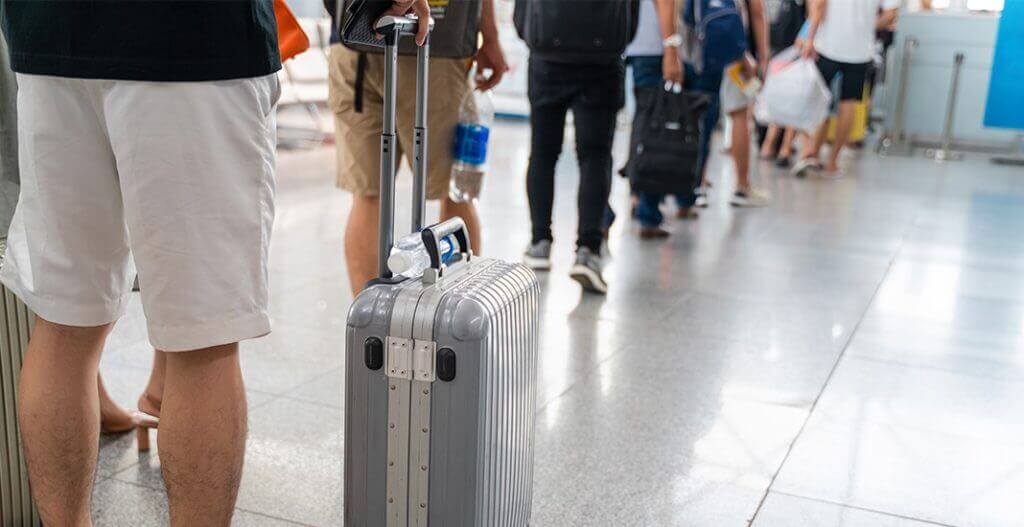
With the summer behind us and a new season full of challenges ahead, we’ve got to put our ‘bright side’ caps on and make the best of what we can.
NB: This is an article from Net Affinity
For example, there are plenty of ways to prepare for, and attract, autumnal business!
With the new framework announced by the Irish government this week, designed to help us manage and live with Covid-19 on a longer term basis, it’s becoming more and more apparent that this isn’t going anywhere anytime soon. Although the country is currently at a semi-stable level 2, there are additional measures in place in Dublin, which may have an affect on people travelling in and out of the capital. How this will affect booking we aren’t sure of yet, but you’ll be the first to know when we have clarity.
Subscribe to our weekly newsletter and stay up to date
Now, on to some key insights from our latest booking data!
- It’s important to note the partial lockdown of three counties in the midlands during August – Kildare, Laois & Offaly – because it forced properties in those locations to close for a few weeks
- Unsurprisingly, there were virtually no international visitors travelling into Ireland during the summer
- There were no cultural or sporting events taking place, which would usually be a draw to hotels nearby. The limitations on numbers of people attending sporting events that are still going ahead continues to keep demand lower than usual
- Most companies still have travel bans in place which removes any possibility of corporate business
- This also means that there are no conferences taking place and it’s unlikely that any will take place for the rest of 2020
- The lead time of bookings made since the announcement of hotels reopening has decreased significantly, making it more difficult for hoteliers to plan for the uncertain months ahead
- Looking ahead to September and October, it looks like resort properties are the main beneficiaries of bookings once again, whereas city properties continue to experience lower booking volumes and occupancy
- Properties that are seeing a higher number of bookings are outside of the bigger cities, where people can be outdoors – this has been a huge trend over the summer
- Naturally, there were no tour groups travelling for summer 2020. This means that many hotels that would’ve had this business before have more availability this year
- For the most part, larger weddings are not taking place. Again, this means that hotels have availability for the nights that these events were booked
- Replacing both types of business with individual leisure can have the result of bookings with a higher rate, as they are not on negotiated or group rates
- According to the IHF, bookings for September and October average room occupancy levels are currently at 24% nationally, compared to 86% for the same period last year.
Here’s our breakdown on general bookings

This graph highlights the impact on the volume of bookings made for all our clients from March 1st to August 31st. It shows the volume of bookings missed during the lock down period compared with 2019.
Interestingly, it also shows how this summer has seen higher levels of booking than last year. Unfortunately this of course doesn’t make up for the business that was lost earlier in the year.
As you can see, bookings pick up on the June 5th, as soon as the announcement about the earlier than expected reopening of hotels (June 29th). Bookings kept going up as we got closer to the reopening date, and they continued going on strong throughout July, for arrivals in July and August.
Then, bookings that were made since mid-August saw a much narrower gap with last year than earlier in the month. Expectations are that this will probably drop significantly what with the kids being back at school, no corporate travel and the over 55s not travelling – not to mention the unsettling increase in cases of Covid-19 across the country.
And what about website traffic?

The graph above shows the level of traffic to Net Affinity clients during the same time period and it indicates the same impact on hotel website visitors.
We’ve seen an increase since June 5th, with it beginning to surpass last year at the end of June, and maintaining until the end of July. August traffic has dropped, similar to what we saw with the bookings.
The fluctuations between midweek and weekend are very visible here and are reflective of normal user behaviour trends.
Where are the bookings coming from in August 2020 compared to August 2019?

Looking at the data here, it’s clear to see that bookings made in August remained on a short lead time.
The average for August 2020 was 32 nights vs 42 nights in August 2019. Overall, bookings made by ROI guests were up 24%, UK guests (inc NI) down 13% and US bookers were down 89%.




